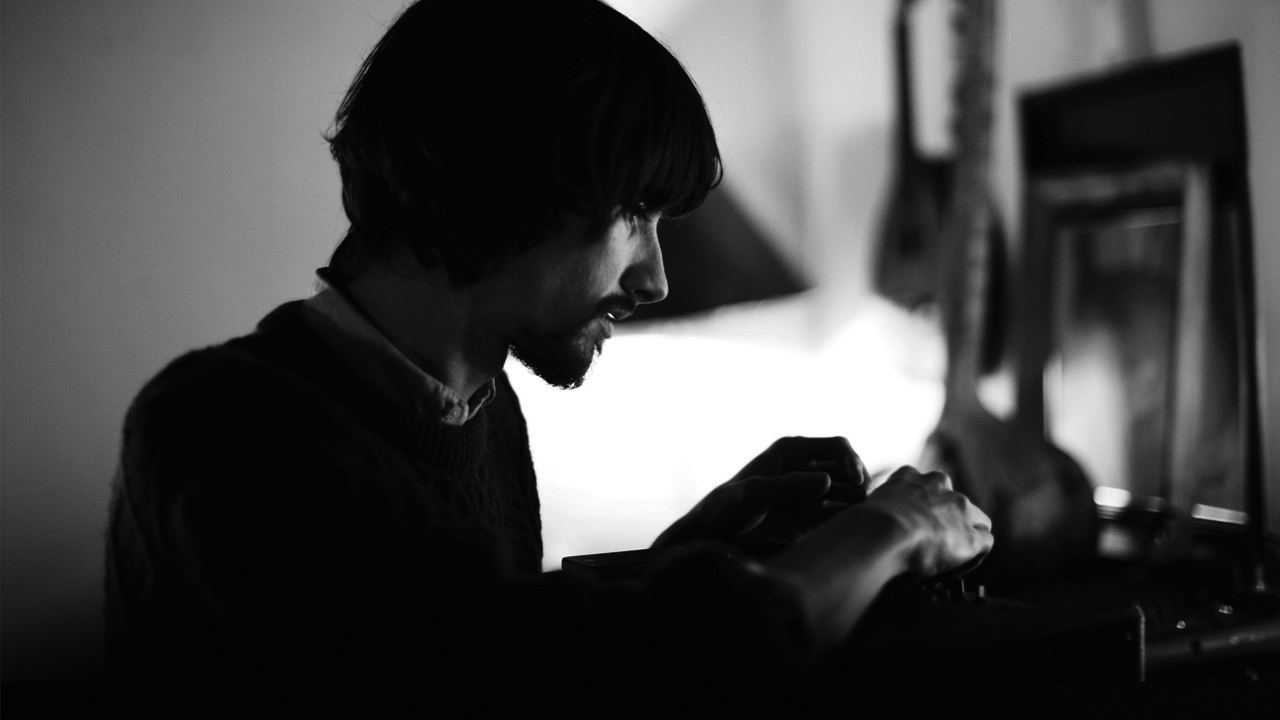Two years ago, in the bowels of a Florida software company, Robert Chaney sat plotting his escape. “I was way back in a corner, away from everybody else,” he remembers on the phone to The Blues. “I had a little piece of paper and headphones, I was listening to songs and taking them apart. I’m going through a pretty nasty divorce at the moment, and I started writing this album when that relationship was already moving off the rails.”
Chaney applied for a job transfer to London in 2013, and has become a full-time musician there. But there’s no escaping his headspace, which tends towards the dark side. “Lyrically, Skip James was a big influence. I mean, that guy is an unashamed misogynist. That’s not a nice thing, but in terms of dark subject matter, I took a lot from him as to what a song should be like.”
His debut album Cracked Picture Frames shows a mastering of the third-person story song, Chaney picking sparse folk-blues acoustic while painting pictures of domestic abuse and psychosis. “I didn’t know anyone in London,” he explains of the almost-solo format. “And most of the music I was listening to was one person in a room with an instrument: a recording of a moment in time. That idea was the statement, the artistic credo of the album.”
The lyrics, he continues, aren’t quite autobiographical, but certainly closer to home than stories clipped from the newspapers. How hard was it was to write in character as a wifebeater for Black Eyed Susan? “I don’t have that on my conscience, but I’ve stared it right in the face. It was based on things I’ve seen in my life, and also dramatised stuff and your own imagination.”
The Ballad Of Edward And Lisa is bleaker still. “Well, that’s a true story,” says Chaney. “Lisa was a co-worker of mine in Florida. All the names are the same. All the events are accurate. Lisa was going through a lot of stuff – I think there were drugs involved – and she got into a situation with her nephew. I don’t know if you’d call it a psychotic episode or what, but she thought he was possessed and he needed to be purified through the eyes with this little knife she had. I think she just got out of prison, actually.”
Then there’s The Cyclist, which follows a couple haunted by the guilt of a hit-and-run. “I was watching a lot of 60s films and French New Wave,” says Chaney, “reading a lot of hardboiled crime fiction, and studying how those writers and film-makers use tension to move a story along. Luckily, that’s not a true story.” Maybe not, but Chaney is confident there are enough macabre events unfolding in his adopted hometown to sustain him. “Definitely,” he nods. “London is an inspiring place. I like the grey. I like the rain. I like that kind of stuff.”
INFLUENCES
“Charley Patton was first, then Rubin Lacey, Ed Bell, Blind Willie McTell – he’s the most incredible slide player. My idea for this album was between the pre-war blues guys and the Chicago electric blues guys – what would it sound like if one was a bit folkier, or if they didn’t have a band?”

